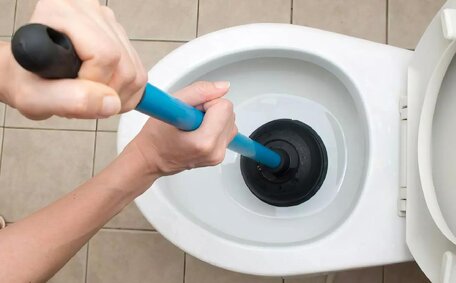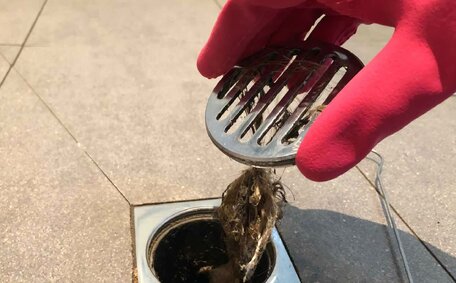
How to Prevent Household Blocked Drains
Blocked drains can be prevented by using drain strainers, avoiding pouring oils down drains, clearing hair from drains, and more tips from Seven Hills Plumbing.
Read MoreSelecting appropriate plumbing fittings and fixtures is crucial for ensuring a reliable and durable plumbing system. The materials and pipe types chosen for your water supply, drainage, and gas lines are key determinants of your system’s life span, upkeep, and safety.
With over 10 years of service in Seven Hills, The expert team at Seven Hills Plumbing has extensive experience ready to install your essential plumbing pipes that your home requires.
Local water type, soil conditions, and sun exposure are significant factors that affect pipe performance, as our experience in Seven Hills has demonstrated.
This guide provides an overview of popular plumbing pipe options, their ideal uses, and considerations to help you select the best materials for your home’s needs. Read on for insights when selecting the right plumbing pipes your next renovation or repair project might need.
If you notice decreased water pressure, frequent leaks, or blockages slowing drainage, your plumbing systems may be corroded or damaged.
Copper piping, renowned for its longevity, is a favoured material in Australian homes. Brass piping, known for its excellent corrosion resistance, can last over 50 years, showcasing its high quality. Copper piping, renowned for its longevity, is a favoured material in Australian homes.
They also have antibacterial properties beneficial for clean water systems.
PEX, or cross-linked polyethylene, is a versatile, flexible plastic pipe frequently used in modern water heaters and a variety of other plumbing tasks. PEX pipes are affordable and easy to install, ideal for both hot and cold water supplies. Knowing the pros and cons, limitations are that PEX can become brittle when exposed to UV light and does not tolerate high temperatures as well as metal pipes.
PVC (polyvinyl chloride) pipes are inexpensive, lightweight, and an easy install option for plastic pipes in low-pressure cold water applications. They are an easy solution when your pipes need a simple cut, join, and implement process within your plumbing system. However, PVC can degrade over time, potentially leaching chemicals into the water and is not suitable for hot water applications.
Galvanised steel pipe was once a staple in older homes owing to its reputed durability. Galvanised steel pipes are durable but prone to corrosion, which can restrict water flow and clog pipes. Particles coming loose from corroded galvanised pipes can cause contamination in drinking water.
Historically, cast iron pipes were the mainstay for drainage lines due to their suitability for waste disposal. However, PVC drain pipes have become more common due to their ease of installation.
Copper piping is highly regarded as one of the most durable options, being one most suited for residential and commercial water supply. Copper can, as a material in pipes often used in water supply, offers excellent corrosion resistance, withstands high water pressure, and has natural antimicrobial properties.
Copper pipes, being rigid, maintain their form over decades without warping. Properly installed copper piping often lasts over 50 years. Moreover, the soldered joints of copper pipes ensure leak-free durability.
Copper is especially suitable for homes requiring sensitive plumbing systems as it resists rust and water contamination. Furthermore, copper can be repurposed during renovations when replacement becomes necessary.
Although initially costlier than plastic alternatives, copper pipe installation is a sound investment. But the long lifespan and safety of copper and PEX water lines cost more than other options yet make this a sound investment for most Seven Hills homes.
Gaining popularity, PEX piping stands out as an efficient, cost-effective option for water supply lines. The flexible tubing, ideal for residential homes, is made from cross-linked polyethylene plastic that can handle hot cold water. It doesn’t corrode or develop buildup like metal pipes.
Compared to different types pipes like copper, PEX is cheaper and offers an easy installation process. PEX is flexible enough to navigate corners and bends, demonstrating advancements in plumbing material technology. Connections are made using simple compression fittings or crimp rings to seal joints.
Despite its vulnerability to UV damage, PEX is exceptionally durable for indoor use. It can withstand temperatures up to 200°F before deterioration could occur. With an expected lifespan of over 50 years, PEX outperforms many other pipe materials in longevity.
PEX has become a staple in new home construction throughout Seven Hills. It reduces material costs and pairs efficiently with a modern tankless water heater, without compromising safety or longevity, unlike older polybutylene piping systems. We recommend considering PEX for your new plumbing needs, particularly suited for a bathroom renovation project.
For residential plumbing, PVC piping is a widely selected plastic solution. These white pipes are lightweight, durable, and inexpensive.
Known for its chemical and corrosion resistance, PVC is a robust option among pipe types. It is frequently utilised for cold water delivery and drainage systems. Nevertheless, PVC is susceptible to becoming brittle when exposed to UV light or temperatures above 60°C.
PVC pipes can last between 30-50 years, meeting the needs of numerous home plumbing applications. Its suitability for straightforward connections and repairs positions PVC as a go-to for DIY plumbing efforts. It’s also suitable for outdoor use.
Overall, PVC offers reliable performance in your home plumbing at a very reasonable cost for most cold water and drainage applications.
Galvanised steel pipes, formerly common in older homes, are long-lasting but corrode rapidly with continuous water exposure. It was commonly installed in older homes but is no longer used for modern plumbing systems.
Internal corrosion can narrow galvanised steel pipes over time, resulting in low water pressure. This can cause leaks, flow restrictions, and water pressure issues. Corrosion also causes particulates to enter water, posing health risks from consuming contaminants.
While galvanised steel pipes used may still function for 30+ years, corrosion problems can make full replacement a necessity. To avoid future issues, we advise replacing old galvanised piping before major problems arise.
Modern piping like copper, PEX, and CPVC plastic are better choices for long-term domestic plumbing reliability. But if galvanised pipes are still functioning properly, due to their sturdy nature, you can use partial system upgrades to defer full re-piping costs.
Selecting suitable plumbing materials for your Seven Hills home involves considering a variety of factors:
Our Seven Hills Plumbing experts evaluate all these factors to recommend the ideal plumbing types for your project. We help you choose right plumbing options - high quality, long-lasting pipes tailored to your home’s specific water quality and environmental conditions while keeping project costs reasonable.
Contact us to discuss the ideal solutions for your bathroom plumbing and other areas in your home.
Properly installing and maintaining your plumbing can help ensure longevity and prevent issues down the road. Here are some key tips from the team at Seven Hills Plumbing:
For new installations of plumbing fixtures or pipe replacements, we advocate for hiring a licensed professional plumber to ensure precision and compliance with building codes. Our experts follow all building codes and best practices to ensure your specific plumbing needs don’t lead to new systems prematurely, functioning reliably for decades.
Investing in high-quality pipes such as copper, PEX, or stainless steel, which have advantages in maintaining your drains over other pipe materials, is also well worth the upfront cost. Our team can guide you to the plumbing pipe types best suited for your home’s durability and optimal performance.
Schedule annual visual inspections to know which pipes are best suited to your system using proper plumbing supplies to check for early signs of leaks, corrosion, visible pipe damage or other problems. Preventative maintenance is crucial to avoid major issues that could potentially damage your plumbing system.
If your pipes are over 50 years old, Pipe replacement with modern materials can prevent headaches and cater to the unique needs of your house. We offer whole house re-piping services in Seven Hills, making them a comprehensive solution for outdated systems.
Contact our team if you have any plumbing installation or maintenance questions! We’re happy to provide free estimates and expert advice tailored to your project.
Blocked drains can be prevented by using drain strainers, avoiding pouring oils down drains, clearing hair from drains, and more tips from Seven Hills Plumbing.
Read MoreNoticing signs of a household blocked drain like slow drainage, gurgling sounds, foul odours or overflowing water indicates you need an emergency plumber. Call Seven Hills Plumbing to dispatch a plumber to clear your blocked pipes before further damage.
Read MoreRestaurants and cafes frequently deal with blocked kitchen drains due to grease, fat and food buildup. Prevent clogged pipes through scraping plates, using drain strainers and avoiding pouring fats/oils down sinks. Or call a professional plumber to hydro jet pipes and permanently clear blockages.
Read MoreSeven Hills, 2147 NSW
We will call back as soon as possible.




